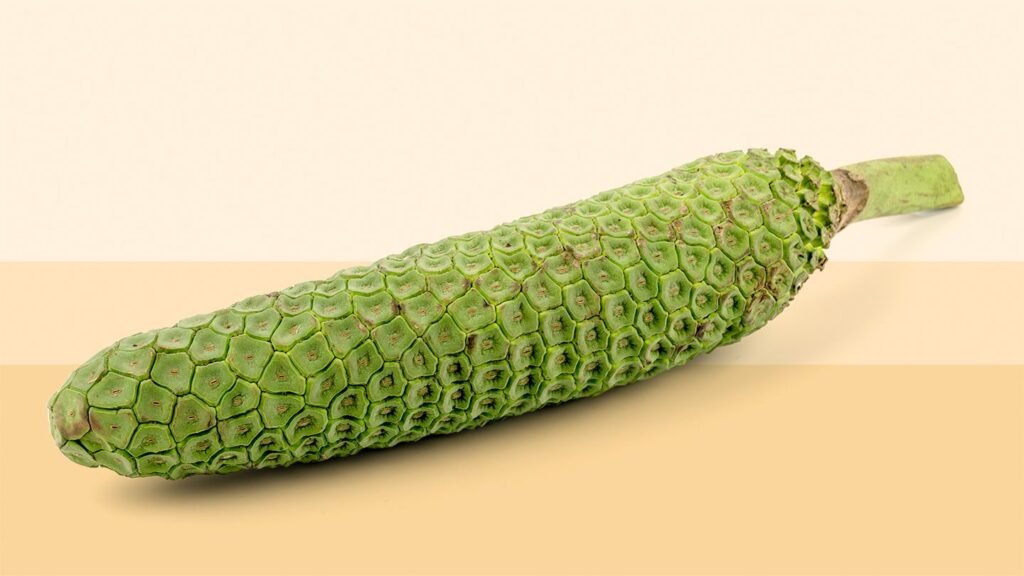In this comprehensive guide, we’ll delve into the fascinating world of cultivating Monstera Deliciosa fruit, also known as Swiss cheese plant fruit. Whether you’re a seasoned gardener or a novice enthusiast, this guide will equip you with the knowledge and techniques needed to successfully grow and harvest this exotic delicacy in your own home garden.
Understanding Monstera Deliciosa Fruit
Introduction to Monstera Deliciosa
Monstera Deliciosa, native to the tropical rainforests of Central and South America, is a species of flowering plant prized for its lush foliage and unique fruit. The fruit, often referred to as Swiss cheese fruit due to its distinctive appearance, is a rare and sought-after delicacy known for its sweet, tropical flavor.
Features of Monstera Deliciosa Fruit
- Appearance: Monstera Deliciosa fruit is characterized by its large size, oblong shape, and rough, textured skin reminiscent of a pineapple.
- Flavor: When ripe, the fruit boasts a deliciously sweet flavor with hints of pineapple, banana, and mango, making it a coveted treat among fruit enthusiasts.
- Harvesting: Harvesting Monstera Deliciosa fruit at the peak of ripeness is essential to ensure optimal flavor and texture.
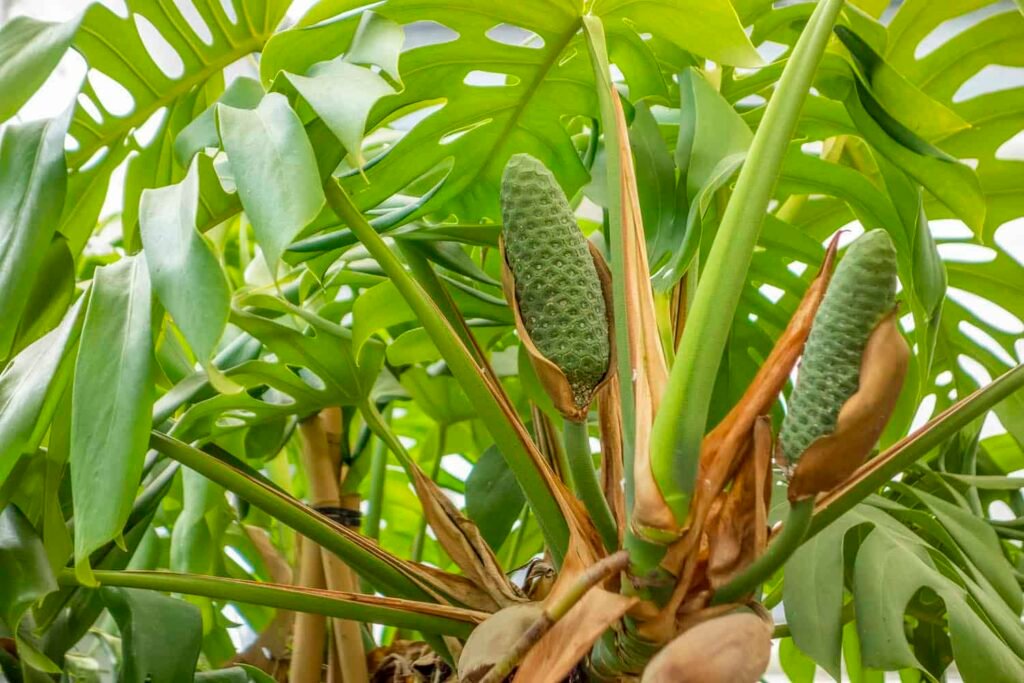
Optimal Growing Conditions
Light and Temperature Requirements
Monstera Deliciosa thrives in bright, indirect light and warm, humid conditions, mimicking its natural habitat in the tropical rainforests. Provide your plant with ample sunlight and maintain temperatures between 65°F to 85°F (18°C to 29°C) for optimal growth.
Soil and Watering
Use a well-draining potting mix rich in organic matter to promote healthy root development and prevent waterlogging. Water your Monstera Deliciosa regularly, allowing the soil to dry out slightly between waterings to prevent root rot.
Humidity and Air Circulation
Maintaining adequate humidity levels is crucial for Monstera Deliciosa fruit production. Consider placing a humidifier near your plant or misting its leaves regularly to create a humid microclimate. Additionally, ensure good air circulation to prevent fungal diseases and promote pollination.
Propagation and Growth
Propagation Methods
Monstera Deliciosa can be propagated through stem cuttings or air layering. Choose a healthy, mature plant and follow these steps to propagate your own Monstera Deliciosa:
- Stem Cuttings: Take a cutting from a healthy stem with at least one node and leaf, and place it in water or moist soil to encourage root growth.
- Air Layering: Select a section of the stem with aerial roots, make a small incision, and wrap it in moist sphagnum moss. Once roots develop, transplant the rooted section into a pot.
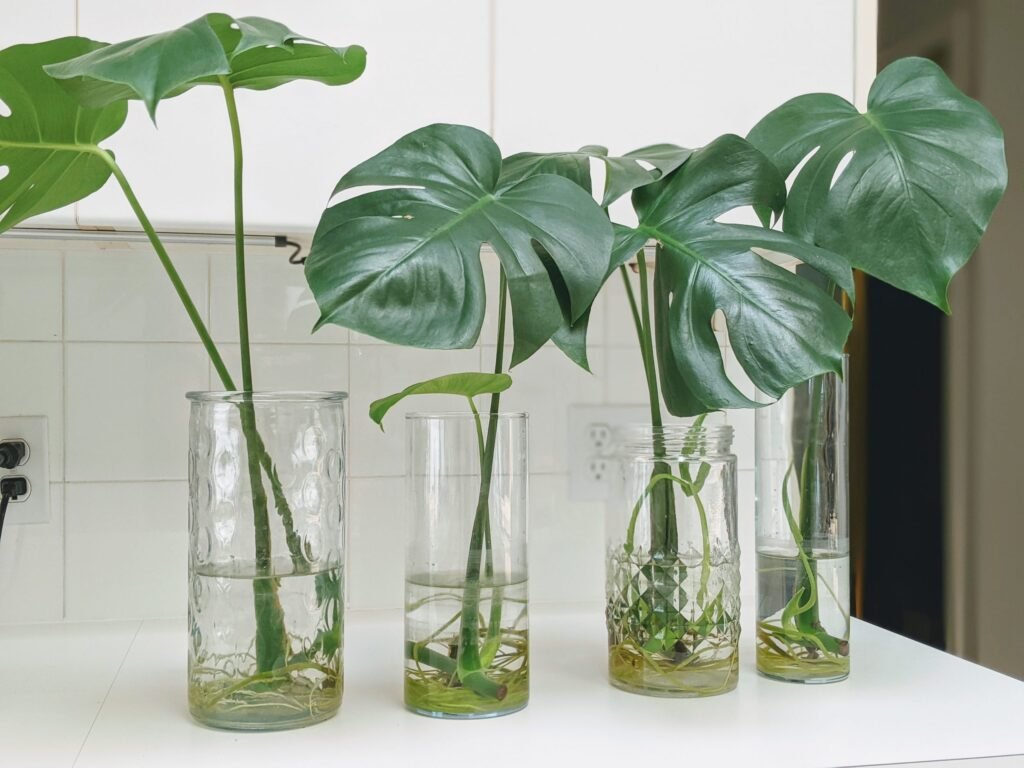
Growth and Development
With proper care and optimal growing conditions, your Monstera Deliciosa plant will begin to produce flowers, followed by fruit. Be patient, as fruit development can take several months to a year, depending on environmental factors and plant health.
Harvesting and Enjoying Monstera Deliciosa Fruit
Ripeness Indicators
Knowing when to harvest your Monstera Deliciosa fruit is essential for optimal flavor and quality. Look for the following ripeness indicators:
- Color: The fruit will transition from green to a vibrant shade of yellow or orange when ripe.
- Texture: Ripe fruit should yield slightly to gentle pressure and emit a sweet, tropical aroma.
Harvesting Techniques
Using clean, sharp shears, carefully cut the fruit from the stem, leaving a short stem attached. Handle the fruit gently to avoid bruising or damage.
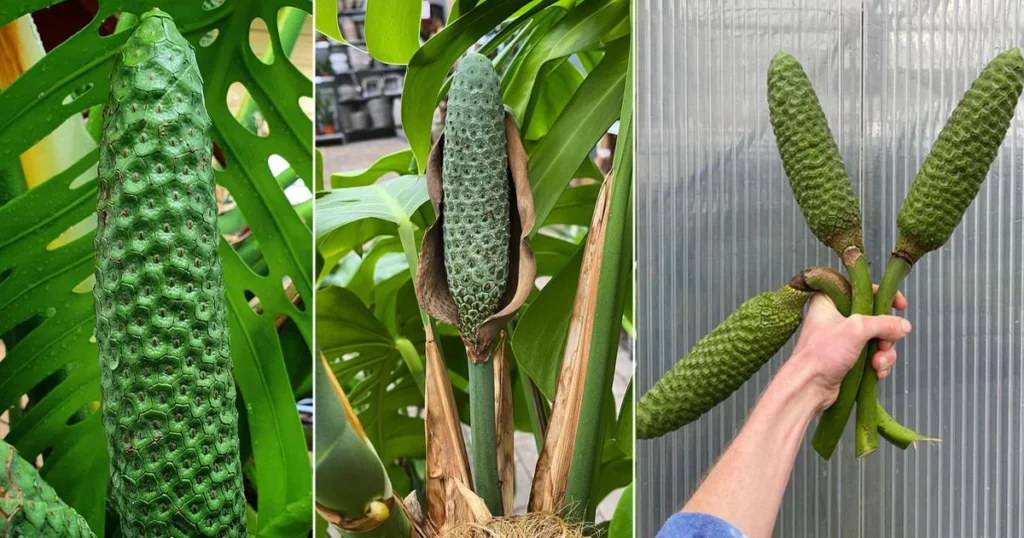
Enjoying the Fruits of Your Labor
Once harvested, allow the fruit to ripen fully at room temperature before consuming. Enjoy the succulent flesh on its own or incorporate it into fruit salads, smoothies, or desserts for a tropical twist.
Conclusion
In conclusion, growing Monstera Deliciosa fruit at home is a rewarding experience that allows you to enjoy the exotic flavors of the tropics in your own backyard. By providing optimal growing conditions, practicing proper care and maintenance, and exercising patience throughout the process, you can cultivate delicious, homegrown fruit that is sure to impress.
FAQs
How long does it take for Monstera Deliciosa fruit to ripen?
Monstera Deliciosa fruit typically takes several months to ripen, with the process varying depending on environmental conditions and plant health. Patience is key when awaiting ripe fruit.
Can I eat Monstera Deliciosa fruit when it’s still green?
It is not recommended to consume Monstera Deliciosa fruit when it’s still green, as it may contain compounds that can cause irritation or discomfort. Wait until the fruit turns yellow or orange and softens before harvesting.
Are Monstera Deliciosa fruit seeds edible?
While the flesh of Monstera Deliciosa fruit is safe to eat, the seeds should be avoided, as they contain oxalate crystals that can cause irritation or digestive issues if ingested.

